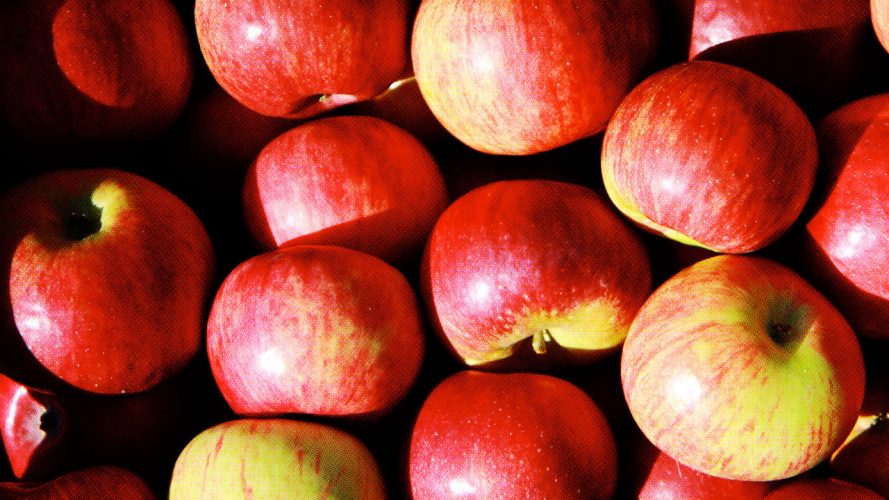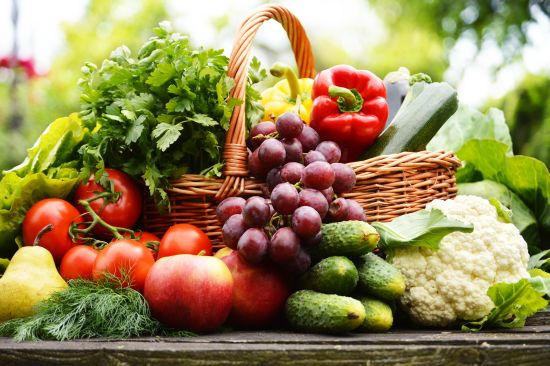
There are hidden dangers in selection and consumption of organic foods. Advocates say organic food is safer, possibly more nutritious, and often better tasting than non-organic food. They also say organic production is better for the environment and kinder to animals. And more and more shoppers seem convinced. Even though organic food typically costs more –sometimes a lot more — sales are steadily increasing.”We’ve had a strong 20%-a-year growth rate since 1990,” says Katherine DiMatteo, executive director of the Organic Trade Association (OTA). She also says more land is going into organic production all the time — up to 2.35 million acres in 48 states as of 2001.
But many experts say there’s not enough evidence to prove any real advantage to eating organic foods. “There’s really very limited information in people on actual health outcomes with consumption of these products,” says David Klurfeld, PhD, chairman of the department of Nutrition and Food Science at Wayne State University in Detroit. “We don’t know enough to say that one is better than the other.” So before you decide whether organic food is worth the price of admission, let’s take a look at the issues. Before October 2002, states followed varying rules for certifying and labeling organic products. But now all organic foods are grown and processed according to strict national standards set by the U.S. Department of Agriculture.
To meet these standards, organic crops must be produced without conventional pesticides (including herbicides), synthetic fertilizers, sewage sludge, bioengineering, or ionizing radiation. Organically raised animals must be given organic feed and kept free of growth hormones and antibiotics. Organic farm animals must have access to the outdoors, including pastureland for grazing. If a food has a “USDA organic” label, it contains at least 95 percent organic ingredients, and a government-approved expert has inspected the farm where it was produced to make sure the farmer follows USDA requirements.
“Before the standards went into effect, you never knew what you were getting,” says Kathleen Zelman, MPH, RD/LD. “My comment to people always used to be, ‘Buyer beware,’ so I’m thrilled that now we as consumers can be confident that when we buy something organic, it really does adhere to certain established standards.” “If you’re talking about pesticides, the evidence is pretty conclusive. Your chances of getting pesticide residues are much less with organic food,” says John Reganold, professor of soil science at Washington State University in Pullman, Wash.
Reganold points to a large-scale study done by the Consumers Union. Researchers looked at data from more than 94,000 food samples and 20 different crops. They found that organically grown crops consistently had about one-third as many pesticide residues as the conventionally grown versions. Organic foods also were far less likely to contain residues of more than one pesticide.
Even so, the amount of man-made pesticide residues found in conventional foods is still well below the level that the Environmental Protection Agency has deemed unsafe. The real issue is whether these small doses, over years and decades, might add up to an increased health risk down the line.
“Is it going to make a difference? I don’t know,” says Reganold. “But it’s something to think about, and we’re the guinea pigs.” Man-made pesticides aren’t the only threats to food safety. There is also the question of natural toxins produced by the plants themselves. In this arena, conventional foods may actually have the advantage.
Because organic production steers clear of synthetic insecticides and herbicides, organic crops usually contend with more pests and weeds than conventional crops. This means the organic plants may produce more natural toxins. “Plants can’t get up and walk away. If they’re being attacked, they’ve got to sit there and take it. So they may resort to their own chemical warfare,” explains Carl Winter, director of the FoodSafe program and an extension food toxicologist at the University of California, Davis.
These natural pesticides could be just as harmful to people — or even more so — than the synthetic pesticides used in conventional agriculture. One familiar example is solanine, a substance produced by potatoes as they turn green, which can make you ill if you ingest too much of it. Another safety concern that has been raised about organic food is the issue of manure fertilizers. Some critics fear that using manure to fertilize organic crops might increase the risk of contamination by dangerous microbes like E. coli.
“The organic farmers talk about the soil being more alive on organic farms than conventional farms. That life isn’t just insects and worms; it’s loaded with bacteria,” says Klurfeld.

But organic production standards do include strict rules on the composting and application of manure. And there’s little evidence that organic food has bacterial contamination more often than conventional food.
“The organic system is the only one with agricultural standards that prohibit the use of raw manure within a certain time frame between harvests of crops for human consumption,” says the Organic Trade Association’s DiMatteo. She adds that bacterial contamination usually happens because of improper handling after the food has left the farm, and conventional food is just as likely to be affected.
Whether the issue is bad bacteria or pesticide residues, experts agree that the best way to safeguard yourself is to thoroughly rinse allfruits and vegetables under running water. You should even wash items with inedible skins, like melons and citrus fruits, because cutting the rind with a knife can bring contaminants to the inside.
Right now, no one can say for sure whether organic food is any more nutritious than conventional food. A few studies have reported that organic produce has higher levels of vitamin C, certain minerals, and antioxidants — thought to protect the body against aging, cardiovascular disease, and cancer. But the differences are so small that they probably have no impact on overall nutrition.
“So far nothing is definitive, but there really hasn’t been a lot of money expended on looking at the nutritional benefits of organic products,” says DiMatteo. She points out that studies done before the USDA national standard went into effect are likely to be invalid, as there were then no reliable controls on organic production methods.
There is one nutritional certainty, though. If you want to get the most from your food, eat it while it’s fresh. “Nutrients like vitamin C do oxidize over time. So even though the nutrients might be higher in organic food to begin with, if it’s sitting in your refrigerator, you could lose that benefit,” says Zelman.
Plus, fresh food just tastes better. This may be one reason people sometimes report that organic foods have more flavor. Because organic farms tend to be smaller operations, they often sell their products closer to the point of harvest. So don’t be surprised if the organic fruits and vegetables in your market taste more “farm fresh” than the comparable conventional produce. Whether or not organic food really is safer or more nutritious, advocates say there is one more compelling reason to go organic: The health of the environment and society as a whole.
“Toxic and persistent pesticides do accumulate. They accumulate in the soil; they accumulate in the water; they accumulate in our bodies,” says DiMatteo. “So by eliminating the use of these pesticides and fertilizers in the organic production system, we are not contributing any further to this pollution.”
But food experts caution that while the big picture is important, you must make the decision that makes the most sense for you. If you can manage the higher price, and you like the idea of fewer pesticides and a more environmentally friendly production system, organic food may be for you. But don’t skimp on healthy conventional foods just because you think you need to save your pennies for the few organic items that you can afford.

“The best thing you can do for yourself is to eat lots of fruits and vegetables and grains. And eat variety. From my perspective, it doesn’t matter whether they are organic or conventional,” Winter says. If you like the idea of organic foods but aren’t ready to go completely organic, you can always pick and choose. Depending on your own needs and goals, here are a few items you might want to put on your list.
If you are most interested in reducing pesticides in your food, buy organic versions of foods whose conventional forms may carry high levels of pesticide residues. These include: Spinach, Green peas, Green beans, Green onions (scallions), Summer and winter squash, Apples, Peaches, Pears, Strawberries, Blackberries, Raspberries. If you’re most interested in promoting the growth of organic farming, buy organic foods that require large expanses of cropland and pasture, such as: Wheat, Corn, Other grains, Dairy foods and beef If you’re interested in more natural conditions for farm animals and fewer antibiotics and hormones, buy products from organically raised livestock and poultry, such as: Milk, Cheese, Yogurt, Eggs, Meat, Apples
Organic Foods that are Most Contaminated with Chemicals and Pesticides
Apples have a lot of pesticides. According to the Food and Drug Administration, more pesticides (a whopping 36) are found on apples than on any other fruit or vegetable. In one test, as many as seven chemicals were detected on a single apple. No organic? Peel your apples. And look for apples from New Zealand (it’s noted on the little produce stickers), which are treated with half as many pesticides as those grown.
Baby Foods: “An infant’s immune, nervous, and detoxification system is less developed than an adult’s and more vulnerable to the effects of pesticides,” says Elson M. Haas, M.D., author of The Staying Healthy Shopper’s Guide. The green beans, peaches, and apples that go into baby food (and all over your kitchen floor) tend to be treated with chemicals. Organic brands like Earth’s Best are available. No organic? Make your own purees by tossing organic fruits and vegetables into the blender.
Butter and Milk: The grains that dairy cows eat are heavily treated with chemicals, which have a residual, though still notable, presence in milk and dairy products. (Milk may also contain bovine growth hormone and antibiotics.)
Cantaloupe: Cantaloupes often contain five of the longest-lasting chemicals, one of which is dieldrin, an exceedingly toxic and carcinogenic insecticide. Though it was banned in 1974, residues still persist in soils and are taken up through the cantaloupe’s roots and absorbed into the edible portion. No organic? Thoroughly wash the outside of the melon, since a knife can drag exterior residues through the flesh as you slice it.
Cucumbers: In a survey of 42 common vegetables, cucumbers were ranked second in cancer risk and 12th in “most contaminated food” by the Environmental Working Group, a respected public-interest group. No organic? Peel the cucumbers, since the waxes used to make the skin shiny also tend to hold chemicals.
Grapes: Because grapes ripen quickly, tend to mold, and attract insects, growers hit them with multiple applications of various chemicals. The worst are Chilean grapes, which are treated with as many as 17 of them. (Ninety percent of the grapes eaten in the United States from January to April are Chilean.) No organic? Search out grapes grown domestically; they are treated with fewer chemicals.
Green Beans: The Environmental Protection Agency has more than 60 pesticides registered for use on green beans. No organic? Choose fresh beans over canned or frozen. Wash them well.
Spinach: In a certain cartoon, spinach makes muscles. In real life, the chemicals used to treat it may cause cancer or interfere with hormone production. No organic? Vigilantly wash each leaf separately under running water.
Strawberries; Strawberries are one of the most contaminated of all produce items in the United States. No organic? Choose local berries over long-distance ones (which generally involve more spraying). The package should say where they’re from, or the supermarket’s produce manager should know.
Winter Squash: Like cantaloupes and cucumbers, winter squash has a propensity to absorb dieldrin from the soil into its edible parts. No organic? Buy Mexican. The soil in Mexico is largely uncontaminated by dieldrin.
Women Fitness hope that this resource on organic foods shall go a long way to make our viewers more informed and let them take a prudent decision about their organic food choices.
Disclaimer
The Content is not intended to be a substitute for professional medical advice, diagnosis, or treatment. Always seek the advice of your physician or other qualified health provider with any questions you may have regarding a medical condition.

